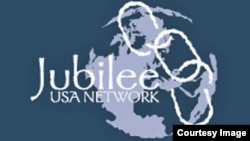Poor countries lose a lot more money each year from corruption and corporate tax evasion than they receive in foreign aid. A new report called the losses a structural cause of extreme poverty.
The non-profit research organization Global Financial Integrity says developing nations lost $6.6 trillion between 2003 and 2012.
Eric LeCompte, head of the Jubilee USA Network, said it’s a problem growing by nearly nine-and-a-half-percent each year.
He said that “Illicit financial flows’ refers to the amount of money that leaves countries that’s untaxed. In general, that money is anything that ranges from tax evasion to the monies that are leaving through corrupt practices. And because of the types of money and because many countries don’t have protections in place, countries around the world are losing annually almost a trillion dollars due to illicit financial flows.”
The GFI report said a record $991 billion was lost to illicit financial flows in 2012 alone.
Jubilee USA Network is a coalition of 75 U.S. organizations, 400 faith-based communities and 50 international partners. It lobbies for global financial reforms to bring debt relief to poor countries. It works with GFI to propose reforms to end illicit financial flows.
LeCompte said despite ongoing efforts and statements by G-7 and G-20 nations, the problem persists.
“Around the world, many policymakers and decision makers are still learning about this reality – that a trillion dollars is leaving countries untaxed. And although there’s movement, there’s still needs to be a lot of education around the issue. And I think for the first time we’re looking at processes where we could actually start to curb this kind of illicit money.”
The report compared the illicit outflow of money to the inflow of aid dollars.
“The amount of money that is leaving some of the poorest countries in the world is 11 times the amount of aid they receive,” he said.
The Jubilee USA executive director said that illicit financial flows are making a bad situation worse in Ebola-stricken West Africa.
“The three countries that have been affected and hit hardest – Sierra Leone, Guinea, Liberia – currently are losing $1.3 billion a year to illicit financial flows. That dwarfs what is for these countries a budget that is less than $300 million to deal with health issues. When this money leaves it’s not addressing some of the important infrastructure concerns in the developing world,” he said.
And LeCompte said even some prominent G20 countries are being affected.
“In terms of the recent report by Global Financial Integrity, the top five countries around the world losing money to illicit flows between 2003 and 2013 were China, Russia, Mexico, India and Malaysia,” he said
So, if all that money is coming out of the developing world, where’s it going?
“We don’t totally know who is benefitting. We know that it’s a whole range of actors,” he said.
He said those that could benefit from illicit financial flows include the extraction industries and banks.
“Essentially, 80 percent of all illicit financial flows are caused through a process called trade mis-invoicing, where money is sent out, capital is sent out of the country. When materials leave the developing world they’re not being taxed properly for the actual value of cargo that’s leaving.”
LeCompte added that it’s a problem that can be solved, for example, by ensuring customs authorities know the true price of goods. GFI estimated it would cost each country a one-time charge of two million dollars to establish such a mechanism.
“If this process [were] put in place, it would literally generate billions of dollars for some of the world’s poorest economies every year,” he said.
Jubilee USA and its partners will push for financial transparency mechanisms at next July’s International Conference on Financing for Development in Addis Ababa. They’ll also lobby to make them part of the Sustainable Development Goals, which build upon the expiring Millennium Development Goals. If successful, they say, developing countries would have billions of dollars more each year to invest in health, infrastructure and education.




